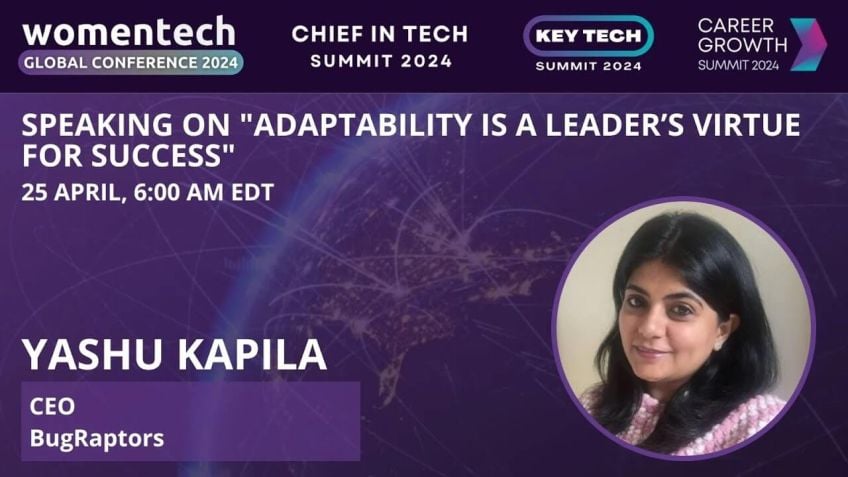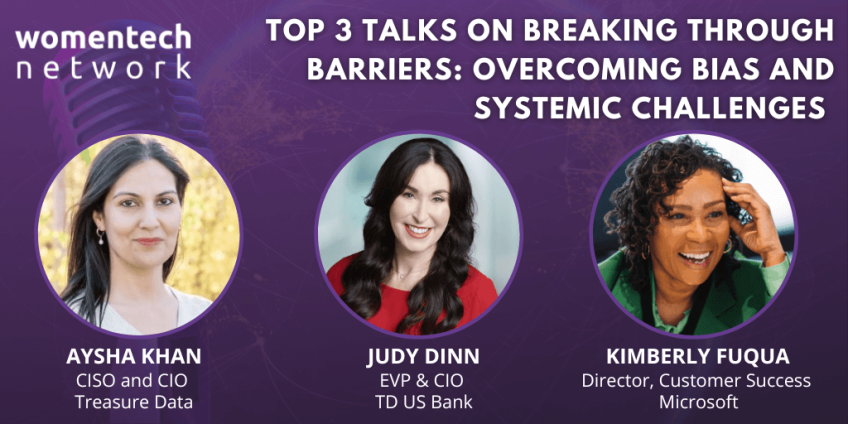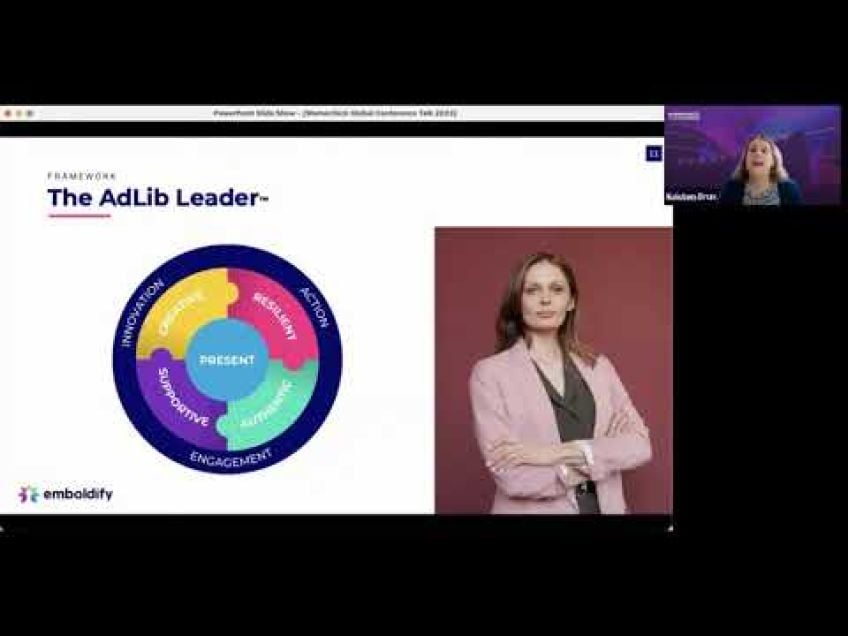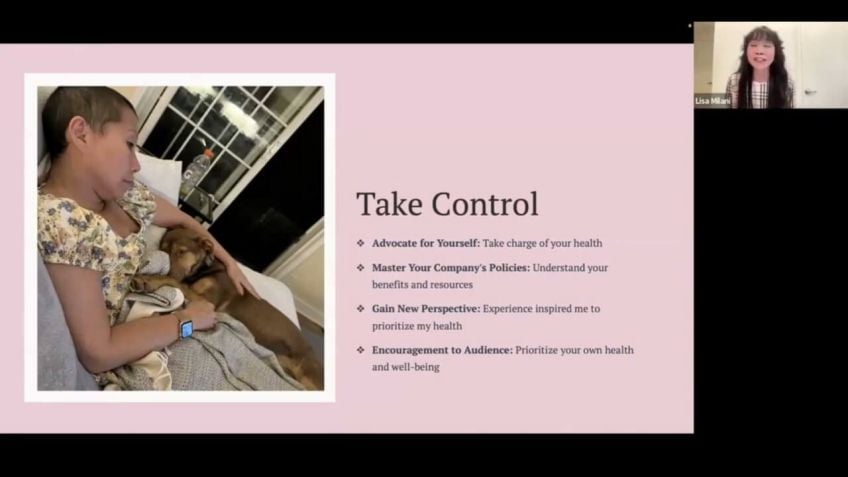Who am I? Discovering Identity and Building Resilience
Building Resilience: The Intersection of Identity and Adaptability
Hi everyone, I'm Ash Gould, a Scrum master working with an automation integration team. Today, I will share with you some insights in the resilience, its core components and how embracing adaptability can leverage your performance at work in a more rounded and efficient manner.
Why Resilience?
It is no secret that the last year or so has been both turbulent and unpredictable due to the impact of Coronavirus. This begs the pressing question: how do we stay strong in the face of adversity?
Our emotional intelligence and social skills will not only serve our own mental health but will empower us to become better leaders and help those around us strengthen their resilience too. The focus is on developing resilience beyond the traditional sense that entails regular sleep, eating well, and exercising.
Components of resilience
Health is just one part of resilience. Other key aspects have been identified, which include:
- Vision
- Collaboration
- Reasoning
- Tenacity
- Composure
Each of these plays a crucial role in developing resilience, but it's a strong understanding of self that enables all six. This informed holistic approach is what will help us become resilient enough to thrive in new environments.
The Importance of Self-Understanding
Understanding yourself and your identity is crucial for resilience.(Aristotle said, "knowing yourself is the beginning of all wisdom"). The stories we tell ourselves shape how we perceive ourselves and influence how we react to challenges. To truly develop resilience, we must undertake a journey of introspection and self-discovery. This requires acceptance and courage to challenge our narratives, and to allow ourselves to change and evolve over time.
The Authenticity Paradox
Throughout our lives, we often struggle with being authentic, especially in a professional context where we feel the need to adapt to desirable roles and behaviours. The contradiction between our personal authentic selves and our adaptive professional persona is what is referred to as the "authenticity paradox".
Leaders particularly can benefit from a flexible version of authenticity that allows adaptation. This way, they remain resilient to challenges because it encourages growth and moving beyond our comfort zones.
Understanding your Natural and Adaptive Styles
To begin this journey into authenticity and improved resilience, take the time to reflect on your natural and adaptive styles. Understanding these will provide valuable insights into how we can live and work authentically.
Final Thoughts
Resilience is not an inherent skill but something we can learn and develop over time. It requires us to courageously look inward, understand, and embrace our many identities. By doing so, we prepare ourselves for a future filled with change, challenges and the promise of growth.
Remember, you are the author of your own story and have the ability to change its narrative — make it one of resilience and adaptive authenticity. Know yourself, grow yourself, and shine in the workplace.
Video Transcription
Hi, everyone. Welcome. I wanna start by saying how grateful I am for the chance to speak with you today. Uh This is gonna be a 20 minute session and we'll have a few minutes for Q and A at the end.So please put any questions or comments in the chat and we'll get to them at the end of the session. So my name is Ash Gould and I work as a Scrum master with an automation integration team. So there were lots of amazing topics I could have chosen today, but I pick resilience because it's something that I feel really passionately about. Uh So it's great to be able to share that with others and go on this journey of discovering identity and building resilience beyond my personal interest and passion for resilience. This topic also combines several of the tracks for this event. I was very drawn to the personal side of the future of work Coronavirus has meant that the last year or so has been quite turbulent, unpredictable and for some of us even traumatic. So when I think about the future of work, I think about how important it is for each of us to stay strong in the face of uncertainty and adversity. I believe that reflecting on our emotional intelligence, people skills that can help us better understand ourselves.
This will not only serve our own mental health and well-being, but it will empower us to be better lasers and help those around us strengthen their resilience too. For many of us, resilience has traditionally focused on things like getting enough sleep, eating well, doing enough exercise.
But health is just one part of resilience. Other key aspects have been identified such as vision, collaboration, reasoning, tenacity, composure. Each of these plays a crucial role in developing resilience. But a strong understanding of self is needed to enable all six. There are actions you can take to improve in these areas, habits that you could incorporate into your routine. But beyond the steps you can take across the six domains. Developing resilience also requires us to know ourselves. If we make the attempt to better understand our identity, then we are better placed to know the areas we already have strengths and selectively choose the most helpful practices in the areas we need to improve. This informed holistic approach is what will help us become resilient enough to thrive in new environments. But knowing ourselves is half the battle for most people. Our sense of self is formed from a collection of stories about who we are. Sometimes we write these narratives ourselves, sometimes they come from others. Our identity is often seen through the various roles that emerge throughout our lives. Executive mother, friend, colleague, leader, professional, these roles will naturally change over time with some being more dominant than others.
We might tell ourselves stories like I can't handle stress or I'm an unlucky person, any and all beliefs we have about ourselves, whether conscious or not come together to form this identity. This collection of stories about who we are is directly influenced by traumatic events and other challenges in our lives. How we integrate these into our sense of self often reveals a lot about our resilience at the time. Do we see challenges as entirely negative experiences or also as opportunities in disguise? Does adversity defeat us or make us stronger? Resilience is not the absence of difficulties but the ability to overcome them. Resilience involves behaviors, thoughts and actions that anyone can learn and develop like building a muscle, increasing your resilience takes time and intentionality. So it requires intentional introspection. We must undertake a continual journey of self discovery, self discovery so often begins with asking a seemingly simple question.
Who am I? The concept of identity has been explored throughout history in philosophy, art, music, literature, psychology. So this is nothing new. Go back thousands of years to ancient Greece. Know thyself is inscribed on the temple of Apollo. Aristotle said, knowing yourself is the beginning of all wisdom.
So there's more to this question than just a self-centered curiosity, knowing yourself has been positioned for millennia as a prerequisite for deeper meaning. A more recent example, though still 100 years old is this quote from Alice's adventures in Wonderland. Who in the world am I?
Ah, that's the great puzzle originally published in 1920. This story has been loved for a century, but of all the possible quotes about identity. Why did this one resonate with me? Well, because on my eighth birthday, I received a copy of this book as a gift from my great grandmother to this day, it's one of my most treasured possessions on the title page. She wrote, I loved this story when I was eight and I still do it 80. So yes, it's sentimental, but it's also a great example that self discovery requires different experiences. It is an ongoing journey for at 80 years old, my great grandmother could tell me that her love of books of this book in particular had persisted through decades. But at just eight years old, I could not possibly have predicted the different elements of my identity that were still yet to emerge. So when we ask this question, who am I does the present tense of an refer to here and now this year, this day, this minute, what about who I was? What about who I may still become? These are important questions if you want to build your resilience within each of us are multiple selves, constantly developing and always subject to change our self then is not one neat Impenetrable identity, but an evolving mess of identities, established and new, retreating and emerging, submissive and dominant, visible and hidden and always altered by experiences.
The complexity of who we are cannot be underestimated. It is a puzzle. Indeed, accepting these different identities is a crucial part of building sustainable resilience. Accepting that it's OK to be more than one thing, it's OK to change. It's OK to not have a definitive answer to the question. Who am I? The challenge comes when trying to have a definitive answer. When we view authenticity as an unwavering sense of self, we struggle to take on new challenges and bigger roles. That is if you're trying to be your one true self at all times, then you are destined to struggle. It's hard to be resilient. If you stick to this rigid definition, we know the concept of one true self is inherently flawed and yet our desire to be authentic. Has some of us clinging to it anyway. Early in my career, I saw authenticity as a fundamental part of leadership that I should really be striving for. I really valued the leaders around me who were open and genuine. And I saw transparency as the epitome of strong leadership.
By contrast, there were some senior people in the same organizations who I found difficult to respect more often than not because I felt that they were fake, guarded and unwilling to show any vulnerability in time. However, I've realized that authenticity is not so black and white, the options aren't being completely transparent or completely fake. Like many things in life, the key here is balance, authenticity has to exist in that gray area which I was still yet to explore. Of course, we can't be completely transparent and express every single thought or feeling we have out loud. We all know there are some things you just don't say or do in the workplace, but how authentic is too authentic, how transparent should we really be? I didn't know it at the time, but this is called the authenticity paradox. Being too authentic means that we limit our leadership effectiveness. But if we aren't authentic enough, then we appear insincere. I was keen to find the right balance and was given a great opportunity to dig a little deeper when I completed a disc assessment as part of a new job back in 2017. Disc is an acronym and it stands for the four main personality profiles described in the model D for dominance, I for influence, S for steadiness and C for conscientiousness. D personalities tend to be confident, they focus on results.
People with I personalities tend to be more open and they're great at influencing and persuading others. The s personalities, they tend to be stable, dependable, co-operative and C personalities place the emphasis on quality accuracy, expertise and competency. Take a moment to consider which one sounds most like you.
This is not ask a variety of questions about how you would react in certain scenarios. The results will show you two different scores, your natural style and your adaptive style, your natural style being as the name implies. What comes naturally for you? The adaptive style says more about your actual behaviors. I'm simplifying of course, but my interpretation at that time was that the natural style must be the real me. And the adaptive style is the me that I portray to the world with this in mind. My results were a little puzzling. My natural style was DS the descriptors for this style are decisive, independent, determined, firm competitive. These have a fast pace, think and act quickly. They can be impatient or even aggressive before I really had time to digest this.
I noticed that my adaptive style was miles away under si my adaptive style is almost the universe of what I've just described. This is an individual who likes a steady pace, they're very patient, very co-operative, they don't take risks. You will also notice the horizontal spectrum of indirect versus direct. You can see that my natural style is to be very frank. This has got me into hot water on more than one occasion. So my adaptive style where I would be more diplomatic emerged. After learned experience on the vertical spectrum, you can see task focus versus people focus. Again, my natural style is to be quite solitary and focus on tasks. But most if not all roles require interaction with others. Collaboration are focused on people. The most interesting part of this for me was that even though aspects of the stars were contradictory, they were both true. I could acknowledge that in my private life, I exhibit more d qualities but in my private life, uh sorry, my professional life, I conduct myself in an si style. There seemed to be a work me and a private me. Was this a bad thing? Did this mean that I was insincere? I started to feel like I was being fake in order to succeed. The good news was that at that time in my life, I could quite easily separate work and home.
When I would go to work, there would be numerous environmental cues that primed me to get into that si mindset, putting on a uniform, doing my makeup, driving to the office. This all came away for me to get into work mode. Even within my work, I had to bounce between different modes, daily fluctuations from giving a presentation to a room full of people or driving to my next appointment in silent solitude. I had to dial up the si qualities when required. But these adaptive behaviors took more energy when I was able to quickly make decisions or complete something on my own. I was expending very little effort because that's what comes naturally to me on days where I had multiple presentations back to back meetings. I would arrive home and need several hours of alone time just to decompress. But there was a clear separation between the two. Over the last year, most of us have been in this new situation of working from home and not just an odd day here and there, but a sustained period where our living and working space have become one and the same. I'm very lucky to work for an organization that ensures we have the equipment and support, we need to work from home effectively. In fact, what has surprised me most of the many ways in which my work has not been affected.
The biggest change I have observed however, is a blurring between those two cells. There is no longer a work me and a private me. The current climate has forced me to confront those discrepancies and find a way for the best parts of each star to coexist. The best way that each of us can reconcile our professional identity with our private sense of self is to embrace that clash, to acknowledge where they are different and to leverage range. The answer is to be adaptive to different scenarios. Choosing the most useful style at the right moments range allows us to be selective about which abilities or skills are best suited to a particular situation. At the time, I took the assessment I was in a fundraising role. So it was imperative that I'd be cooperating likable.
Inspiring, my job was to engage and inspire people to donate to a cause in the role that follow. I was a project manager. So I needed to lean into my assertiveness and decision making skills to drive projects forward. In my current role as a Scrum master, I get to use both of these skills and more. I wear a different hat and different style multiple times a day adapting to suit a different audience or retreating to my natural style. When I quickly need to finish off a task, a balance of an agility between the different styles is key. Take a moment to reflect on your role and how authentic do you feel doing it? Depending on your role, you may have ample opportunity to do this switch in between styles for others. It might be rare that you ever get to leverage your real qualities to a certain extent how much we can successfully use our natural style, tells us something about how suitable we are for a role. If you never get to do the things that you are naturally good at, then you're really missing an opportunity. If there is such an imbalance that you are always having to fight your natural instincts, you may find that you fatigue quicker and are more prone to burnout.
But like most things, resilience and a activity aren't skills. You're born with the things you can learn and develop. Most often you learn and develop these skills through necessity as I did about biting my tongue. It was through those experience that I explored that gray area between being completely transparent and being completely fake. But don't forget we get to make those explorations. We are the authors of most of the stories we tell ourselves and we can change that narrative adapting to new styles can be intimidating. It's often required of us when advancing in our careers and is particularly important in leadership roles. It takes intentionality to break out of familiar behaviors, particularly if you've been doing something in the same way for years or even decades. Building resilience is as much about unlearning old patterns as it is about adopting new ones. Resilience requires courage, conviction, a strong sense of self coupled with a willingness for that self to evolve over time. Leaders in particular can benefit from this flexi flexible definition of authenticity with a flexible version of authenticity that allows us to adapt.
We can be more resilient to challenges because it encourages growth. It encourages us to move beyond our comfort zones through understanding our identity, we can accept that one style, one action, one experience does not define us. We can be authentic, maintain our core values and still learn and grow. This is the kind of resilience we need for the future. So what can you take away from all of this? Take the time to reflect on your natural and adaptive styles? Do you adapt. How much, how often when do you feel most like yourself? What makes you feel the most tired? When do you listen to your natural instincts? When do you fight them, approach these questions? Not with anxiety and judgment as I initially did, but with curiosity with the intent of uncovering all the best parts of yourself, by all means revisit those six domains of resilience. But also keep in your mind that core influence of identity, the better you know yourself, the better you will be at incorporating the most helpful practices into your life. If the description of my natural style resonated with you and you're also that determined individual who likes a fast pace, then it's probably good to focus on tenacity. As you already have strength in that area, you could also prioritize health as this would shield you from burnout.
If you're more of an extrovert who actually gets energized by socializing, then for you, it's probably more important to prioritize collaboration because interactions with others will likely be key to resilience for you. If the description of that c personality sounded more like you, you have an emphasis on quality and accuracy, then you're likely to benefit from leading into your already well-established reasoning skills, whatever your natural and adaptive styles may be, take the time to get to know yourself, give yourself permission to pause and look inward to get to know the many identities that form you go on this journey of self discovery.
It will give you valuable insights. It will put you in a great position to learn and adapt from the experiences yet to come. It can tell you the best ways to take care of yourself and be resilient to any challenges the future may hold. Thank you so much for listening to these personal anecdotes from my own self discovery journey so far. I hope it's been valuable and I hope that each of you accept my invitation to do the same for yourselves. Thank you so much.





